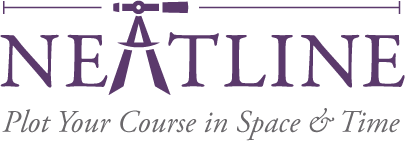[crossposted from scholarslab.org]
As part of our collaboration on Omeka + Neatline, the Scholars’ Lab and Omeka development teams are seeking your assistance to help make our projects more useful across many scholarly disciplines–including beyond the humanities and cultural heritage fields in which they originated. We’ve developed a short survey asking questions about new data types that Omeka+Neatline could display and metadata formats that it might import and describe.
While Omeka + Neatline can handle many metadata standards and formats familiar to humanities scholars, archivists, and museum professionals–such as Encoded Archival Description schema (EAD), Text Encoding Initiative schema (TEI), Dublin Core (DC) and Visual Resources Association Core (VRA Core)–it is also possible to import simple CSV files or any flat XML format, with potential to handle other formats more applicable to your field’s standards.
We’d like to hear about other specific standards and formats that could make Omeka + Neatline more helpful to your research and scholarship.
Thank you for taking a few minutes to answer our survey!
